Alternative Spring Break provides dynamic experiences for students despite pandemic restrictions
The School of Information Sciences' Alternative Spring Break (ASB) is a competitive program in which chosen applicants are paired with one of the country's premiere information organizations for an intensive week-long internship that aligns with the student's area of interest.
Like most things these days, the ASB program looked a little different this year due to the ongoing COVID-19 pandemic. The school’s partnering institutions, including the Smithsonian Anacostia Community Museum in Washington, D.C., the Hoover Presidential Library, Maryland State Archives and Wayne State’s own Walter P. Reuther Library did an incredible job providing students with dynamic and meaningful experiences in a virtual environment.
The valuable work experience and networking opportunities provided by the ASB program can make a huge difference for students as they graduate and transition to the work force. Ten outstanding students were accepted to the program this year. Read first-hand accounts about their unique experiences below.
Christopher Calandro
Smithsonian Anacostia Community Museum, Washington, D.C.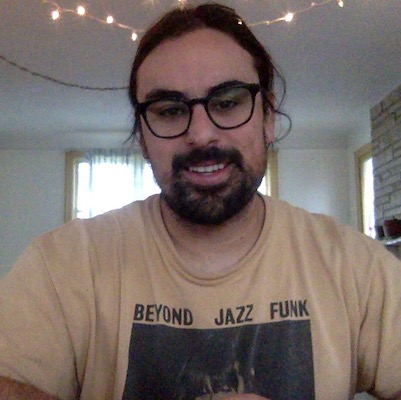
“This experience has meant a great deal to me. I hope to participate again in the future.”
Most of my work with the Anacostia Community Museum centered on adding subject headings to photographic collections as well as preparing descriptions of the collections for the museum’s website. Many of the photographs were taken by Washington, D.C., resident Susana Raab, while others were taken by a photographer Brad Richman. Richman’s work chronicling streetball and unique basketball courts I found particularly interesting, moving, and poignant. Working with these collections was its own reward.
What has this experience meant to you?
This experience has meant a great deal to me. Beyond the enjoyment I got working with the material itself, my experience dealing with the amazing people at the Anacostia Community Museum was an immeasurable success. In particular, our project coordinator Jennifer Morris was helpful, complimentary, warm, and enthusiastic. She made the process one that I will never forget.
I would recommend this experience to other students! It gives you a chance to not only gain professional experience, but to meet and connect with professionals working in the field. I hope to participate again in the future when I can hopefully work hands-on in an institution.
Amber Harrison
Walter P. Reuther Library, Archives of Labor and Urban Affairs, Detroit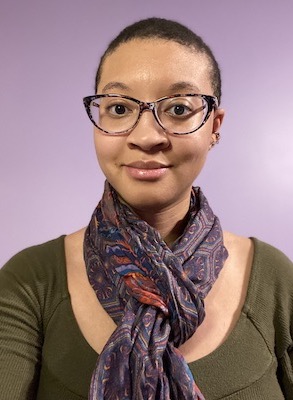
“From the moment I heard about the SIS Alternative Spring Break program, I knew that I wanted to participate.”
I worked with the Reuther Library, helping them process oral history interviews. SIS practicum students conducted these interviews last year and focused on COVID-19 and quarantine experiences. During the course of this Alternative Spring Break internship, I listened to several of these oral histories while proofreading oral histories transcripts.
Since we are a full year into the pandemic, it was an odd experience listening to people discuss their experiences from almost a year ago. Everyone was so unsure. So many had to change how they approached their work and had to adapt at being at home (many with children) on a regular basis.
Of my fellow oral history interns, we were each assigned several oral histories to review. Funnily enough, I ended up with the longest interview and it took the bulk of my time to complete it. I’m normally fast when it comes to listening to and transcribing oral history interviews, but this experience was certainly a unique one. But I was glad I got the lengthiest one because it detailed life as a music teacher during the pandemic. My undergraduate degree is in music education, and when the pandemic started, I was so worried about former colleagues and friends trying to navigate teaching music but not being able to actually teach it. I’m glad that the Reuther pursued creating this oral history collection because there is so much to learn and preserve on this ongoing global pandemic.
What has this experience meant to you?
From the moment I heard about the SIS Alternative Spring Break program, I knew that I wanted to participate. However, because it required students to travel and stay at the internship site for a week (out of state), I did not have the funds or time (due to work and other obligations) and therefore could not participate in the program. However, this year was different. Due to COVID-19 and quarantine, the Alternative Spring Break program went virtual. Between that and being in my last semester of the program, I knew that I had to jump on this unique opportunity and apply.
Finally getting the opportunity to participate in the Alternative Spring Break program was a wonderful experience, one filled with gratitude. Because I am at the end of my program, while completing the internship I realized that I was nervous that I might fall short. However, that wasn’t the case. It reinforced skills I had learned and developed during the course of the program. Being at the end of the program, I saw this as a test, one that determined whether or not I was prepared to enter the professional world of archival administration. This Alternative Spring Break experience proved that my time in the SIS program served and trained me well. Despite a career change on my part, I feel prepared and ready to enter the archives field.
I definitely recommend this experience to other students. It gives you the opportunity to explore and hone archival skills outside of the classroom, yet still in a safe learning space. This experience would especially benefit students in the Archival Administration program who do not have an already established professional background in the field. It can be difficult trying to manage a new career field and participating the Alternative Spring Break program is one way to encourage and explore recently acquired skills as well as overall interest in the field.
Frances Heldt
National Archives and Records Administration
Herbert Hoover Presidential Library and Museum, West Branch, Iowa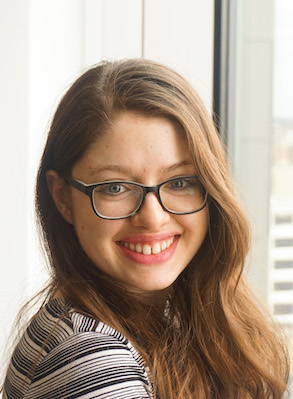
“The opportunity to make professional connections with and learn more about a place you hope to work someday is an opportunity too good to pass up.”
For one wonderful week, I was immersed in the National Archives and Records Administration. The project I worked on for the Herbert Hoover Presidential Library was to create an item-level index for Lou Henry Hoover’s scrapbooks during her and her family’s many travels around the world in the first decades of the 20th century. The scrapbooks contain family photographs, postcards, newspaper clippings, telegrams, travel itineraries, and more. As an incredibly rich resource into the lives of the Hoover family and the personal interests of Lou Henry Hoover, an item-level index to these materials greatly aids the library’s reference and research staff. As there was not enough time to finish indexing the scrapbooks in one week’s work, I have elected to stay on at the Hoover Library as a remote volunteer to complete the indexing work and continue building relationships with the staff.
Our program supervisor at the Hoover Library was Supervisory Archivist Craig Wright. Despite the virtual format and the inability to visit the library in person, Craig went above and beyond to make our experience as comprehensive as possible. What proved to be more educational than working on the indexing project was the multitude of video chat and email conversations we had with Craig and other staff members. We began every morning with a video call where we were encouraged to ask questions and engaged in wide-ranging and in-depth discussions about NARA, the archives field, and daily work at the Hoover Library. We also attended staff meetings and virtual events throughout the week that sparked more intriguing topics of conversation.
What has this experience meant to you?
As I approach my graduation in December with an MLIS and GC in Archival Administration, I believe that this experience will prove invaluable. I learned not just about the structure and culture of NARA as an agency and the political intricacies of the presidential library system, but also concrete advice on how to pursue a career at NARA. Additionally, I learned more about Herbert Hoover in one week than I ever knew before (and gained a new fascination with Lou Henry Hoover). Throughout the week, I especially enjoyed observing the finer points of archival practice in the reference, processing, cataloging, and acquisition procedures at the Hoover Library. I was pleasantly surprised to find that the Hoover Library holds manuscript collections on a range of subjects besides the Hoover family and presidential administration (it holds the Little House papers of Rose Wilder Lane, daughter of Laura Ingalls Wilder).
What I gained from this experience overall was a greater knowledge of NARA and how it operates, a deeper appreciation for the important work done by presidential libraries, and, most importantly, a wonderful network of new professional connections. The culture of the staff at the Hoover Presidential Library was particularly positive and welcoming, and I am grateful to all the archives and museum staff members that shared their backgrounds and advice with us.
I would recommend this experience to anyone! The opportunity to make professional connections with and learn more about a place you hope to work someday is an opportunity too good to pass up. I am grateful that the program was offered virtually, as it would not have been possible for me to go to the Hoover Library in person (though I do hope to make a visit to West Branch, Iowa, in the future!). Working for NARA in a regional repository or a presidential library is a dream of mine, and, thanks to the Alternative Spring Break program, it now finally seems within reach.
Leigh Holmes
Smithsonian Garden Archive, Washington, D.C.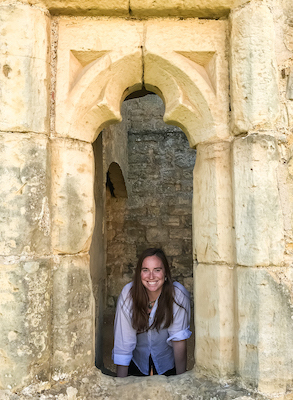
“I have always wanted to work at the Smithsonian and the Alternative Spring Break Experience let me explore that dream for a week!”
At the Smithsonian Garden Archive, I engaged in a number of projects. Unfortunately, due to IT clearance issues, I was not able to access ArchivesSpace to assist with the data migration of their lantern slides. Instead I utilized Excel and identified and transferred the EADref number for over 300 Lantern Slides so that my supervisor could easily input the data. Not having access to ArchivesSpace expanded the types of projects I was assigned which I think was wonderful! I got to work on another project focusing on women within the archive’s collections. I linked Library of Congress subject terms to an excel sheet list of women. Lastly, I was assigned to conduct research on women colorist of the lantern slides found in the archive’s collections and on women figures important to the growth of garden clubs in America. It was while doing this research that I discovered something extraordinary and personal to me.
I conducted research on the woman Mrs. Francis King who was a horticulturist, author, lecturer and founder of multiple garden clubs. There was a lantern slide record of her Orchard House and I needed to first identify that indeed that was what her house and gardens were called, describe the record, and then conduct biographical / historical research on Mrs. Francis King. Mrs. Francis King was extremely influential during the 20th Century and was known as the Fairy Godmother of gardening in America! However, the most interesting part in my research was learning that she lived in my hometown of Alma, MI! Thousands of people would visit her home, Orchard House, in small town Alma just to view her gardens. Growing up, I always loved driving past her Tudor-style home! Unfortunately, her renowned gardens were turned into a parking lot. Today, her gardens can only be visited through archival photographs!
What has this experience meant to you?
I have always wanted to work at the Smithsonian and the Alternative Spring Break Experience let me explore that dream for a week! I have only engaged one on one with professors or with my peers in class about the archival field. Through this experience, I enjoyed being able to take what I have learned in my courses and apply it in an institutional setting with new people and see how the policies and concepts that are taught in my courses are applied in a work setting.
This experience was a wonderful opportunity to learn about other institutions and how they operate. I think this experience is extremely beneficial and important for the exposure to different perspectives on how an archive conducts access and maintains their collections. Even if one already works in an archival setting, by exposing yourself to new conversations at a new institution, an exchange of ideas, policies and practices can occur which can be brought back and discussed at your archive!
Amanda Kemp
Smithsonian Anacostia Community Museum, Washington, D.C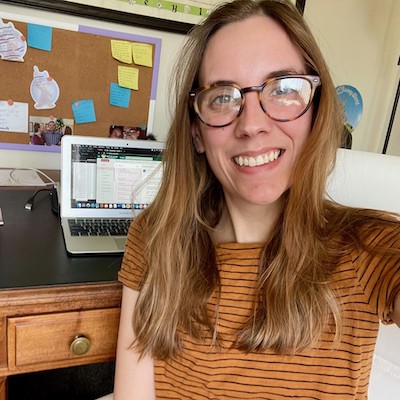
“This experience gave me a chance to put the concepts I have been learning throughout my time in the MLIS program into practice. It also helped me confirm that I have made the right decision regarding my chosen specialization.”
I had a chance to assist with the description process of a few different series. I spent the first half of the week working on some photograph series, mostly of local Baltimore events that have happened in the past few years. At the end of the week, I also got the chance to start working on a collection of love letters written between a couple during World War II. I was able to assign subjects to the photographs and letters for all of these series, as well as come up with new subject terms to use in these series. I had the opportunity to write short descriptions for some of these series as well.
What has this experience meant to you?
This experience gave me a chance to put some of the concepts I have been learning throughout my time in the MLIS program into practice. It was incredibly helpful to see how things like subject terms and series descriptions actually apply in a real archival setting. Yet, the best thing about the alternate spring break program was that it reaffirmed my decision to focus on archival studies. I have never had the chance to work in an archival setting or a library, so I have had to make decisions regarding courses and my specialization based off of what I thought I would enjoy and be good at. This experience made me feel I have made the right decision regarding my chosen specialization, and now I know that I definitely will want to work with archives after graduation.
I would highly recommend this program to any other students who are considering it. The chance to work in the field before graduation was an incredible opportunity. This experience made me feel more prepared for the rest of my courses, and for job searching post-graduation.
Thomas Mazza
Gerald R. Ford Presidential Library and Museum, Grand Rapids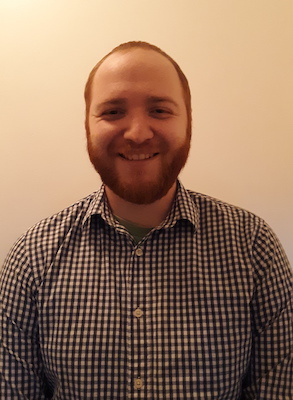
"Seeing how much time and effort there is for one project shows how an archivist's work is never done."
The work I did for the ASB program was to help with a project by listening to recordings of the 1976 President Gerald Ford campaign. These recordings consisted of President Ford, Vice President Candidate Robert Dole and many others. Once I heard the recordings, I had to either write up a title or edit and create scope and content descriptions for the recordings as well. I was able to have three meetings with my supervisor, Elizabeth Druga, throughout the week. We talked about her role at the library, which is the head of the AV section of the archives, as well as how each task might be done differently when doing AV type of archiving compared to other types of archiving. In the middle of the week, I was also able to talk to other archivists who work at Gerald R Ford Presidential Library. One has been there for many years and the other was new. It was great to talk to both of them to get perspectives from someone who has been doing this kind of work for a while and another who just got started. Getting to work on a project at the Presidential Library was amazing and a lot of fun. This was a valuable experience where I was able to get an understanding what an archivist must do.
What has this experience meant to you?
This experience made me see what is involved with being on an AV project in archives. Seeing how much time and effort there is for one project shows how an archivist's work is never done. I am glad to have experienced this because I have had little to no experience in an archive setting and aim to be a part of one in the future. This has given me the first step into achieving this goal. Even though it was only a week of working with an archive, I was able to talk to three different archivists and see how they got to be where they are and be part of what they do. I feel that being able to work with this institution, I got my start to getting closer to start my career by gaining some experience through this program.
I would definitely recommend students apply for this program. I had very little experience in an archive setting and this gave a great starting experience to see how archive projects are done and have the opportunity to talk to archivists to understand what they do. It was only a week-long project, but it was a great way to get some experience in an archive. I don't know if I would have had the opportunity for this type of experience without the Alternative Spring Break program.
Lean Minadeo
Maryland State Archives, Annapolis, Maryland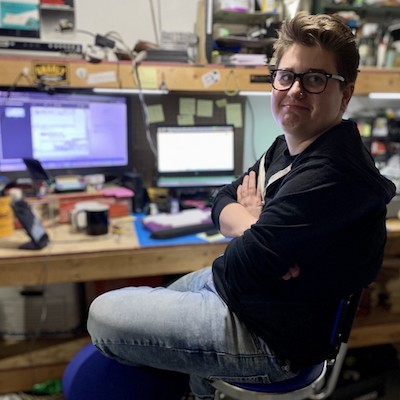
“Alternative Spring Break was an invaluable opportunity to gain new skills, practice and explore those introduced in coursework, and connect with experienced archivists working in the field.”
I was fortunate to be placed with the Maryland State Archives (MSA) for my Alternative Spring Break experience. MSA is an impressive repository with dedicated conservators and IT staff, including programmers who developed their management systems and helped establish an online presence early in the 1990s. They have one of the largest digital collections of land records, including the State Highway Plats that I worked on indexing.
Plats are cartographic representations of property boundaries. In Maryland, plats and other land records must be indexed and made publicly available within two weeks of receipt from the creating agency. They arrive at MSA from the State Highway Administration with limited indexing information, namely a contract number of little meaning outside the agency, so it is MSA’s task to add the description necessary to render these land records reasonably findable by users. I was assigned 2,000 plats to transcribe and (sparingly) standardize. For the duration of the week, I kept the plats open on one monitor and my review spreadsheet open on a second monitor—truthfully, a small flatscreen tv that I pulled out of storage and plugged into my laptop at the onset of the pandemic. For a project like this, I can’t recommend enough an extra computer monitor and a full keyboard with a number pad!
I found the project to be a useful exercise in the boundaries of standardization since I was transcribing many not-quite-identical records. Across plats, the same highway might be stylized in a number of different ways, including MD Rte. 38, Maryland Route #38, MD Rte. Number 381 or State Route 381.
With a background in writing and editing, it was tempting for me to apply a high level of standardization; however, streamlining too much could constitute alteration of the record. Through conversation with the supervising archivist, I learned a balancing act of faithfulness to the original record and standardization that facilitates discovery.
The task was also an exercise in alertness and attention to detail. Ten records in a row might contain identical original description, with the eleventh record different by just one character. Especially in a long series of highway plats referring to the same project, it’s easy to become inattentive to small variations and slip into something akin to highway hypnosis—no pun intended. I developed strategies to remain attentive, like taking breaks every 100 records or changing the order in which I filled fields.
What has this experience meant to you?
While having a dedicated and repetitive project helped me to practice and cement archival skills and concepts, the most rewarding aspect of the week was meeting with archivists and archival staff from various departments, including Imaging, Reference, Education, Appraisal, and Special Collections. By the end of my 40-hour week, I had spent nearly 8 hours just talking to archivists, an opportunity I used to essentially interview them about their roles, professional journeys, and personal philosophies as archivists. I learned a lot about my own professional interests through those conversations, and they were all so gracious with their time.
Ideally, I would have been able to make the trip to Annapolis, but MSA did a remarkable job approximating the in-person experience within the constraints of the pandemic and the archivists made me feel welcome to stay in touch and visit in the future. Especially as a newcomer to libraries and archives, Alternative Spring Break was an invaluable opportunity to gain new skills, practice and explore those introduced in coursework, and connect with experienced archivists working in the field.
Eric Morgel
Maryland State Archives, Annapolis, Maryland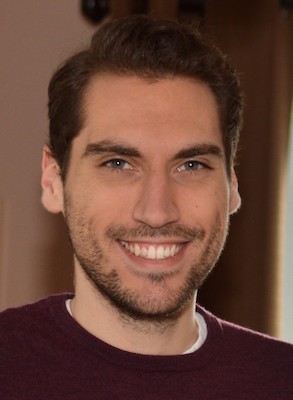
“Alternative Spring Break is a great way to network with professionals in the field; although the project was entirely virtual this year due to the COVID-19 pandemic, the project supervisor did a great job of introducing me to the archives.”
My colleague, Leah Minadeo, and I worked on an indexing project for the Maryland State Archives. We looked at state highway plats that have been digitized and are available online to help the archives correct wrong or missing information. The information that we entered into a Google sheet will then be uploaded to the highway plats website, thereby helping researchers find these plats more quickly.
Though the project was entirely virtual this year due to the COVID-19 pandemic, James Watson (the person who oversaw our project) did a great job of introducing Leah and me to the archives. Throughout the week, we had virtual meetings with staff and department heads, where they gave us an overview of their department and the work they do. They also answered any questions we had about their day-to-day activities or the archival profession more generally.
One of the highlights from this week was meeting Maria Day, the head of the Special Collections unit at the archives. We were able to discuss with her the types of materials she has in her collections and the work that goes into caring for these items. Meeting with the archives’ digitization department was also great, since it gave us a chance to learn more about the different tools and software they use to make the Maryland State Archives collections digitally available.
What has this experience meant to you?
This experience means a lot to me, as it allowed me to put the things I’ve learned in the classroom into the context of the “real world.” As an example, the project Leah and I worked on will allow users to find resources quicker and more accurately because researchers will be able to search for these plats using the additional information we provided. What’s more, because of the digital aspect of this project, I couldn’t help but think about all of the effort that will go in to ensuring that these plats are usable into the future. Overall, I really appreciated that this project dovetailed with my coursework; it helped make topics like access and digital preservation less abstract and more concrete.
I would definitely recommend the Alternative Spring Break to students! For one thing, it is a great way to network with professionals in the field; James and the other staff members made sure to let Leah and me know that there are other projects/internships available with the state archives. I also think the experience supplements academic coursework in a practical way. So with all this in mind, it really is in a student’s best interest to apply.
Kendra Moyer
Walter P. Reuther Library, Archives of Labor and Urban Affairs, Detroit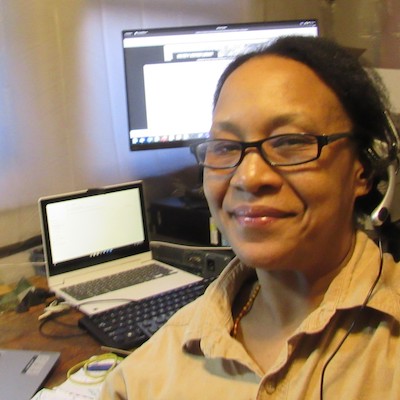
“This experience has given me insight into local history and the many treasures stored in the Reuther Library. I am particularly interested in local labor and workers history, so this placement was a goldmine.”
During Alternative Spring Break, I met with Troy English and other colleagues to train in editing transcripts for the COVID-19 Oral History Project. We reviewed style and editing guides over the week and worked through different methods of time-stamping recorded interviews. During this process we would be responsible for a second draft of the interview including the time stamps and any revisions to the primary text.
The nearly daily meetings helped with achieving the necessary momentum and skills needed to complete these tasks, alongside answering any lingering question related to format and other conventions in archival recording of oral histories.
Additionally, I was made more aware of different software tools available to assist with digital transcription. Troy was a worthy mentor who walked us through presentations on the most current conventions in digital oral histories and archives, with many current examples and ample materials.
During the week I spent time listening to each recording several times before adding timestamps at 30 second intervals. Once the timestamps were in place, a final edit of the text was completed. There were many missed and different wordings, so these additional drafts and edits are important.
This project is especially important for understanding how workers are coping and adjusting during this unusual medical phenomenon. Many workers are struggling to cope with lagging income and an uncertain future, and many have lost loved ones. These workers’ stories are inspirational in documenting the resilience of people during a crisis.
What has this experience meant to you?
This experience has tied in several experiences I have had in archives over the past three years. Largely I have come to a better understanding of the importance of revising and revisiting meta data categories. As a student archivist, it is critical to gain field experience and to shadow professionals working in a real-life setting. This experience has also given me more insight into local history and the many treasures stored in the Walter P. Reuther Library. I am particularly interested in local labor and workers history, so this placement was a goldmine.
I recommend that SIS students seek out every opportunity to gain more experience and to truly experience the day-to-day routine of working in archives. In my journey as an almost graduated librarian, I worked for a summer as an intern at the Motown Museum. One of the things I realized was that I am very allergic and have a very intense skin reaction to constant contact with dust and mold. In spite of the museum being well kept, I was somewhat surprised and came to the to understanding that I am far more suited for the technological side of archival work. These are great opportunities to get your feet wet and to decide what type of working atmosphere is most suitable for each new information science graduate.
Andrew Willhelme
Walter P. Reuther Library, Archives of Labor and Urban Affairs, Detroit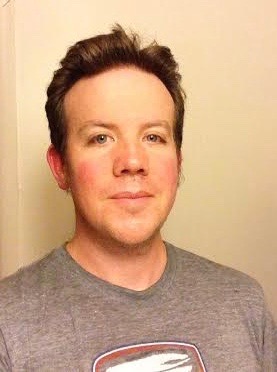
“While academic learning provides a good foundation for pursuing careers after we graduate, nothing can really substitute for practical experience in the field. This program offers a great opportunity to do just that.”
For this project I edited transcriptions for the Reuther Library’s COVID-19 Oral History Project. This involved carefully listening to interviews and editing their accompanying transcriptions for accuracy and readability, using a style guide for consistency. The focus of the project was to record the experiences of common men and women as they navigated the challenges brought on by the COVID-19 to the lives, both at work and at home. The highlights of the week were just hearing about how the interviewees coped with the pandemic and the changes it brought to their lives. They all had unique stories and perspectives. The other highlight, of course, was getting to learn how to transcribe oral histories and to have the opportunity to get real world experience doing archival work.
What has this experience meant to you?
This project was very meaningful to me personally as it gave me a chance to learn from others’ experiences during such unprecedented and challenging times. We have all been so isolated from people outside of our immediate circle of family and friends and it was helpful to hear about how others have experienced the past year, finding similarities and understanding the differences. The project was also meaningful to me professionally as it offered me an opportunity to get real hands-on experience engaging in archival work.
I would recommend this experience to other students because it gives students a chance to put into practice what we learn both in class and in the literature. While academic learning provides a good foundation for pursuing careers after we graduate, nothing can really substitute for practical experience in the field. This program offers a great opportunity to do just that.